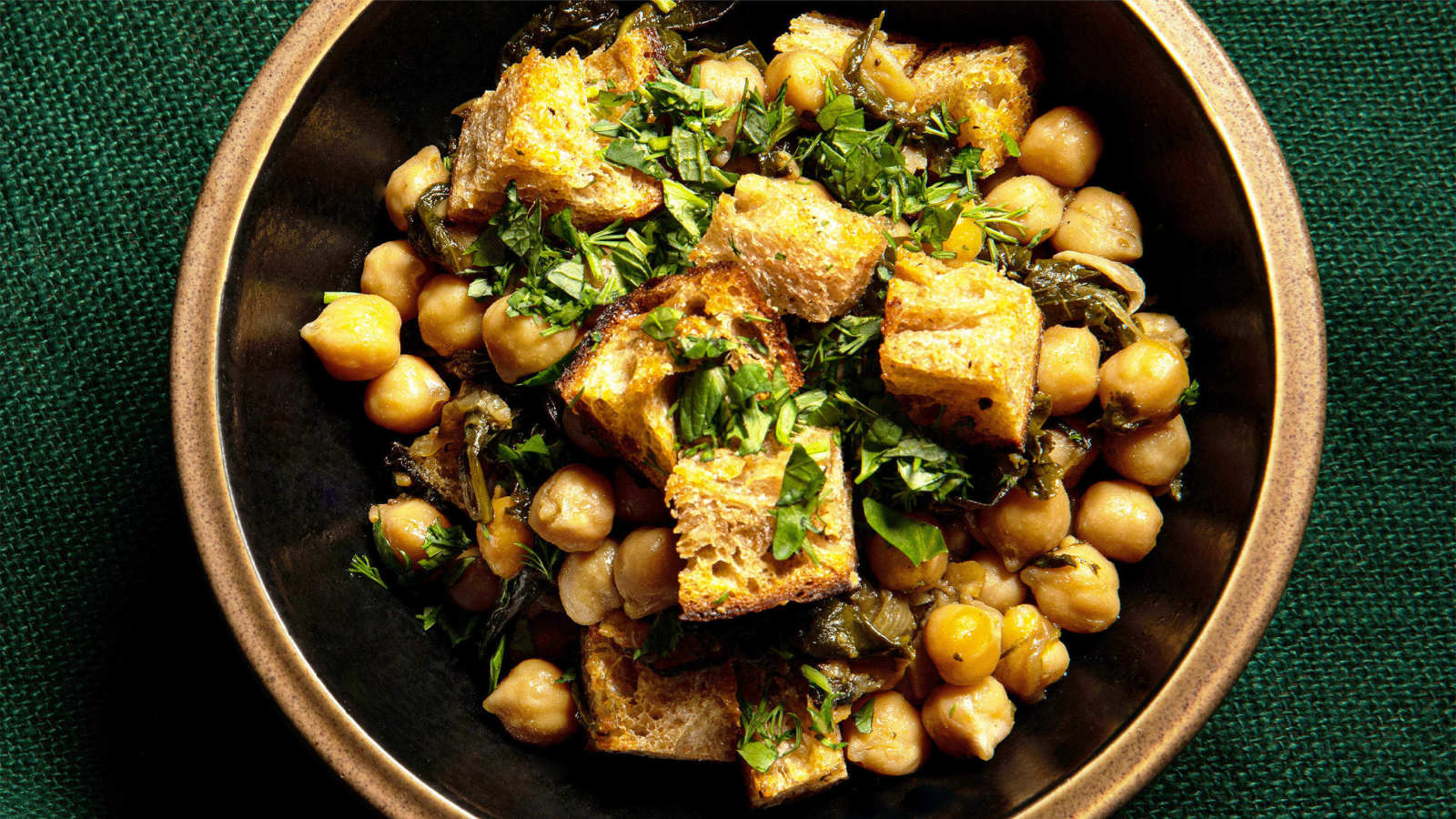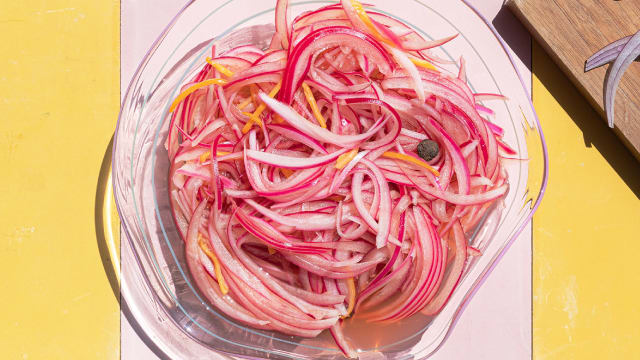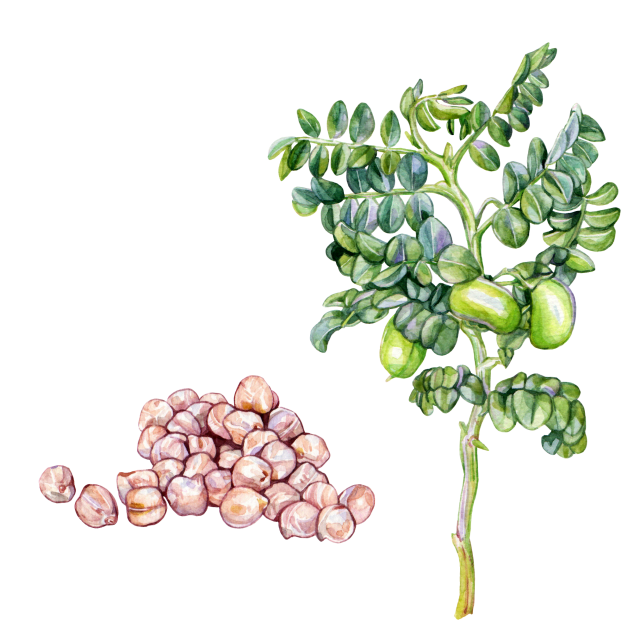Scurdijata

Scurdijata
Description
Scurdijata is a peasant dish from Salento, Italy, traditionally made with foraged wild greens, leftover beans, and stale bread. It's highly adaptable, but using dried beans cooked the day before, fresh local greens, good bread, and high-quality olive oil makes a big difference. Legumes are nutrient-dense, rich in amino acids and folate, while greens provide fiber, micronutrients, and antioxidants.
NOTE
This dish is about using up leftovers, so substitute and adjust quantities freely
Ingredients
4 to 6 SERVES
Basic Beans
- 1 cup (200 g) dried chickpeas or any dried beans, soaked overnight
- 3 cups (720 ml) water
- 1/2 tsp salt
- 1 bouquet garni (a bay leaf, 2 sprigs of thyme, 2 sprigs of parsley, tied together)
- 1 garlic clove, sliced
For the scurdijata
- Olive oil
- 2 garlic cloves, sliced
- 1 small dried red chile, sliced, or 1/2 tsp chile flakes
- 2 cups (320 g) dandelion or wild chicory greens, previously cooked or boiled in salted water for 5 minutes
- 2 cups (480 g) cooked chickpeas
- 1 cup bean cooking liquid or vegetable stock
- 2 cups (100 g) stale bread (whole-grain sourdough or similar), cut into cubes
- Salt
- Freshly ground black pepper
- Herbs for garnish (optional)
Directions
-
Step 1
To make the beans: Drain the beans and add to a large stockpot, cover with water, add salt, and bring them to a boil. Add the herbs and garlic, and lower to a simmer. Cover the pot and cook for about an hour or until the beans are tender. Remove the bouquet garni and discard. Drain the beans, reserving 1 cup (240 ml) of the liquid. Set aside. -
Step 2
Into a large pan over medium heat, pour enough olive oil to coat the bottom. When it ripples, add the garlic and red pepper. When the garlic just begins to color, 30 seconds, add the greens and stir well. Lower the heat and let the greens cook for about 10 minutes, stirring occasionally; you want to see a bit of browning on some of the greens. -
Step 3
Add the beans, and their cooking liquid or stock, stir well, and let cook for another 10 minutes with an occasional stir. If some beans start to break up, that’s good; they’ll thicken the liquid. -
Step 4
While this is cooking, toast the bread cubes in a pan with a little oil, salt, and pepper, stirring them to color several sides of each cube. Turn off the heat and set aside. Taste the beans and greens mixture for seasoning, then turn the heat off. -
Step 5
Spread half the croutons in a platter or shallow bowl large enough to hold everything easily. Ladle the mixture over the bread, then top with the remaining croutons. Drizzle with some more oil, garnish it with some chopped fresh herbs if you like, and serve.
Virtually any combination of greens and any type of legume from lentils to chickpeas, will work here. Try cannellini, pinto, or navy beans. Dandelion and other wild chicories are traditional, but broccoli, chard, or mustard greens work well.
Explore Recipe Ingredients
About the author
More by Peter Barrett

Beet Salad
This simple salad is almost a quick pickle, using a bright vinaigrette to balance the beets’ earthy sweetness. A bowl of these enhances just about any meal.

Belizean Pickled Onions
This tangy, crunchy, and fiery red onion condiment from Belize brightens up sandwiches or salads

Braised Artichokes
Try this antioxidant-rich recipe of braised artichokes in white wine sauce and dressed in olive oil



